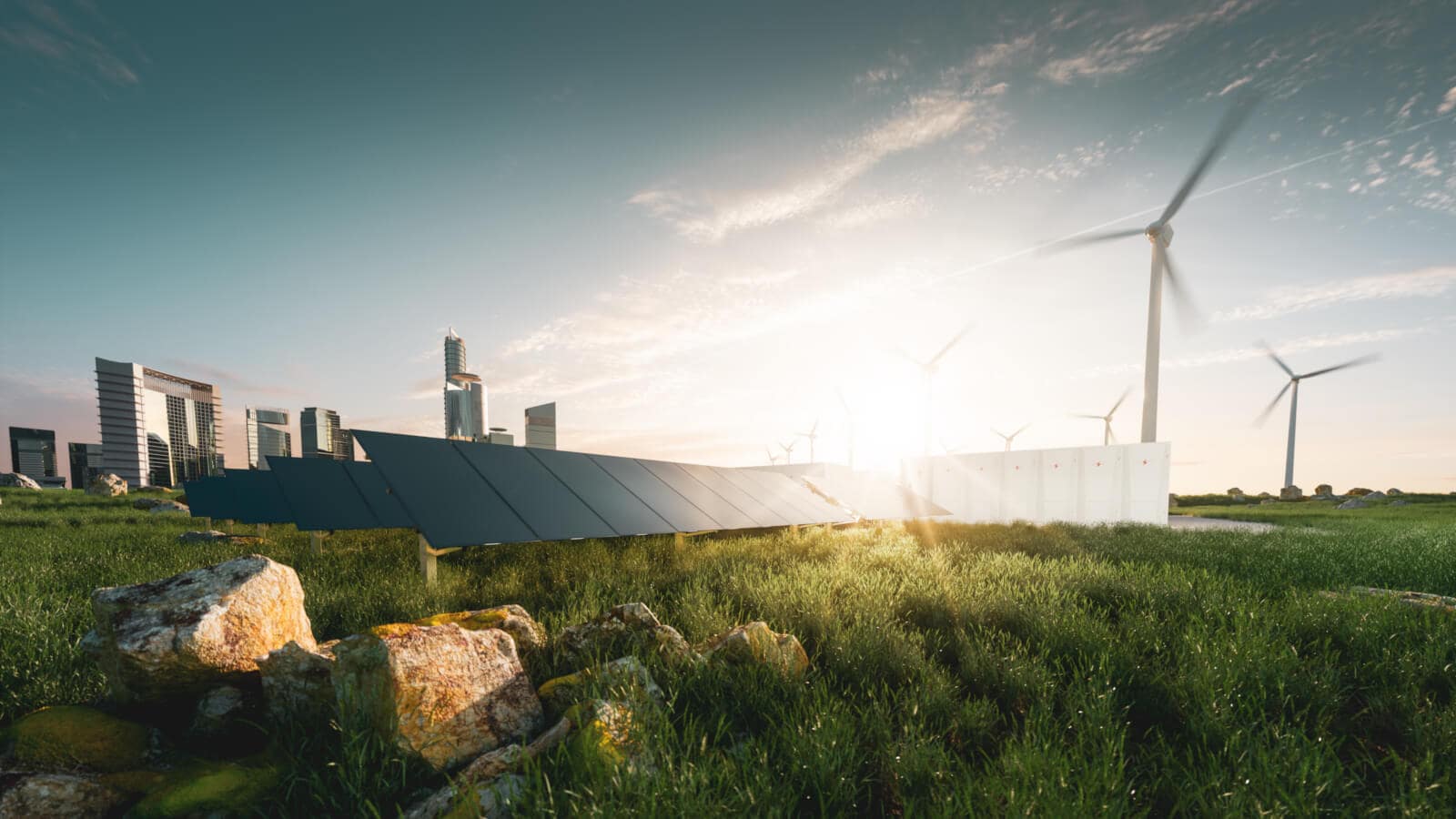The UK is aiming for net zero by 2050, which requires a wholesale transformation of the way in which all sectors operate, and an estimated £50bn of primary capital every year. So it’s no surprise that the investment community is deploying record sums of capital into growth businesses that will decarbonise all sectors of the economy, from power and utilities to transport, buildings and industry.
Our predictions
At PwC, our Deals practice has over 300 people focused on helping our clients invest into the energy transition. Off the back of a record year for us in 2023, here are our predictions for what subsectors are likely to be hot for investors in 2024.
In no particular order:
- 1. Energy storage
- 2. Offshore wind
- 3. Network infrastructure
- 4. Transport decarbonisation
- 5. Building decarbonisation
- 6. Energy services
- 7. Other areas
1. Energy storage
The UK has c.3.5GW of battery storage and needs more to manage intermittent generation. Some expect c.150GWh of energy storage by 2035. The market has seen capital raises and investment from infrastructure investors, such as DIF's £200m in Field Energy in 2023. We anticipate more secondary transactions, as early movers monetise their portfolios and new investors look for scale. e.g. InfraRed’s sale of Statera to EQT last year.
Long duration storage may also see more activity. Statkraft acquired the Red John pumped storage project in late 2023. DESNZ has launched a consultation on a potential cap and floor regime, which could boost this market. We also see potential for international expansion. The UK has led the way in grid scale storage, but the opportunity is also huge elsewhere. Investors are considering other markets across Europe, each with its own regulatory and commercial drivers.
2. Offshore wind
The UK has also been a leader in offshore wind, with almost 14GW of capacity and a target of 50GW by 2030. The market faced a setback in 2023, when the CfD auction received no bids, due to a low strike price of £44/MWh and rising supply chain costs. The government has revised the strike price up to £73/MWh. We would hope this is sufficient to revive the market, attract more investment and competition in 2024 and make 2023 a one-off blip as opposed to a longer trend. We will await the next auction results with significant interest.
We are also seeing offshore wind developers derisk their exposure, and investors secure opportunities and pipeline at earlier stages. We expect more secondary transactions at earlier stages of a project's lifecycle.
3. Network infrastructure
Peak electricity demand could rise from c.60GW to 130-190GW as the transition develops. UK electricity networks need £270-350bn of investment to cope with this greater demand. We expect a lot of this capital to be deployed via regulated utilities, which will drive capital raises and exits for DNOs. We also expect more activity in related areas such as last mile utilities and metering, as we saw in 2023, e.g. Macquarie Asset Management's 50% stake in Last Mile Infrastructure; Arcus's acquisition of National Grid Smart; and KKR's offer for SMS plc.
The offshore transmission market will also grow to serve the offshore wind market, as more cables are needed to connect the wind farms to the grid. OFTO deals will become larger and more complex, and earlier investors may recycle capital or exit their portfolios.
4. Transport decarbonisation
Transport accounts for around a third of the UK's emissions, and is behind the curve on decarbonisation. Passenger volumes have recovered post COVID, boosting confidence in the sector. Electric vehicle charging has seen significant investment from infrastructure funds that have done their homework on how this market will develop. The delay in the ban on the sale of new internal combustion engine cars and vans in the UK to 2035 may have created some uncertainty over the pace of uptake, but the direction of travel remains the same. We expect to see international consolidation start to happen amongst the leading players, with less established players finding it hard to raise the capital they need unless they have a very clear proposition.
We also see potential in the fleet charging market, where large corporates could be attractive counterparties for infrastructure investors. Electrification of the bus and EV fleet segments saw market interest last year, when KKR committed $750m to Zenobe Energy.
5. Building decarbonisation
Buildings are responsible for around 40% of the UK's emissions. Decarbonising UK buildings will require improvements in energy efficiency and reducing the carbon intensity of heating and cooling systems, lighting, appliances and other devices. For example, we could have 2m heat pumps by 2025. This market is fragmented, with many small players and a complex supply chain which makes it hard for big ticket investors to get involved. There will be opportunities for mid-market private equity to invest in fast growing installers (e.g. Freshstream's acquisition of Project Better Energy) and strategic investors to consolidate or add capability.
New solutions are also capital intensive, creating opportunities for financing or "as a service" solutions, which could attract infrastructure investors. We expect to see partnerships with installers, as players seek to secure routes to market.
6. Energy services
There are plenty of opportunities for asset-light investment strategies in the energy transition. A wide range of services are needed to support new energy assets, such as optimisation platforms, O&M, EPC and construction, data and analytics, and battery recycling. Other areas include metering and billing, demand response and aggregation, and energy consulting. These services are essential to maximise the value and performance of assets, and to enable the integration and coordination of the energy system. The scale of the opportunity is highlighted in a recent report by PwC in conjunction with the World Economic Forum, which revealed an opportunity to reduce global energy demand by 31%, saving $2 trillion annually by 2030, without sacrificing productivity.
7. Other areas
Other areas, such as hydrogen, carbon capture and storage, sustainable aviation and biofuels also have a vital role to play. Whilst there may be some limited deal volume, we expect 2024 to be focused on laying the groundwork for these markets - the work we are doing is more in the realm of strategic studies - for example successful bidders for the UK's Hydrogen Production Business Model were shortlisted in December last year. Deal volumes in these sectors will take off in the medium term, as the technologies mature and the regulatory frameworks evolve.
We expect 2024 to break all records for capital deployed into the energy transition, and we are excited to see whether our predictions play out.
Contact us









